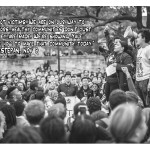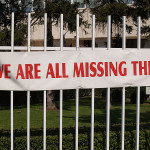by Ashia Ajani
My name is Ashia Ajani, and I’m casually pansexual. I like poetry, cats and basic human rights, as well as safe queer spaces. I usually operate on a “if you ask, I’ll answer” system, which often backfires into a slew of intimate questions which I would rather avoid in the first place. I am out to most of my friends, am somewhat out to my father, but not to my mother.
Not smothering, but “quieting” my queerness has been crucial to my survival; I know this to be a similar experience for a lot of queer youth. Still, I am hopeful that moving forward, we can cultivate a sense of understanding when it comes to queer students and their experiences. The most fundamental way, I think, is to use the resources we have at hand.
In May 2015, President Salovey announced an enormous grant given by Yale alumnus Stephen A. Schwarzman intended to renovate and create a new campus center. Schwarzman Center has become somewhat of a running joke among Yale students: what is there to do with all this money and space?
Due to the vast array of queer identities, it is necessary that we create an LGBTQ space somewhere on campus. Oftentimes, we share spaces with other marginalized people that may not fall under the spectrum of queerness.
We have a very definitive presence on campus that sometimes is not recognized in the way other identities are regarded. There should be a safe space where we can gather, chill, laugh, cry and discuss queer issues without feeling obligated to rush our conversations. What better place to do that than a completely new, spacious building that is coming very soon?
My desire for an exclusively queer space stems out of my respect for the cultural houses. As a person of color, specifically a Black person, it is comforting to walk into the Afro-American Cultural Center and be with people who know my struggle, who possess a love and respect for me that I believe transcends all others. That feeling is able to flourish because we have a space where we can love each other and love ourselves unapologetically. We are a part of a larger community, the Yale community, but we still belong to each other on a deeper level given our common identity.
The insurmountable joy I get from being around other Black people is the joy I want to feel when I walk into queer spaces. It is the joy I believe every marginalized group needs. We spend so much of our time fighting; it is imperative that we are provided an outlet to release that pain. When marginalized groups rally for each other’s individual space, that is when we start productive conversations about solidarity.
As a freshman, I am constantly being told that I am entering Yale University at a pivotal point in its history. The Class of 2019 is the most diverse class of Yale College’s history, we have three new cultural center deans determined to enhance the Yale experience for students of color through collaboration and innovation.
Our “liberalism” cannot be taken at face value. The impact of our actions will determine what will remain when we have left Yale’s Campus. If we are so committed to cultural change and justice, an exclusively LGBTQ space must be a part of that journey.



